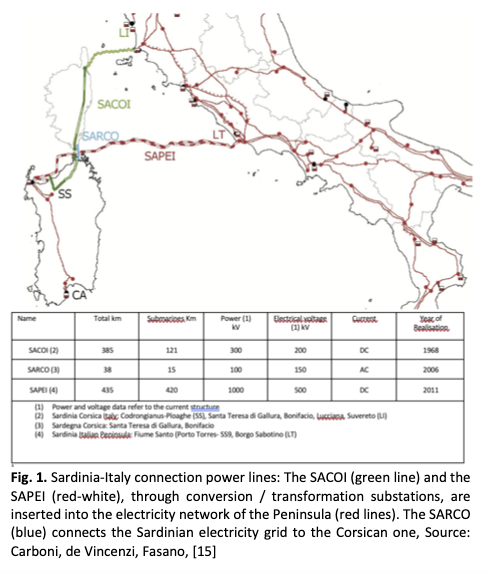Energy Production from Renewable Sources: Evolution and Development Prospects for the North West of Sardinia
DOI:
https://doi.org/10.37934/araset.33.3.319340Keywords:
Renewable energies, innovation, North-West SardiniaAbstract
The issues related to energy production and the development of renewable sources (RES), connected to the contextual policy of "phase out" from coal by 2025, in line with EU directives, are considered a strategic objective of the Italian energy system and a priority of new infrastructure investments for the electricity grid system. The geo-economic and infrastructural characteristics of Sardinia constitute the ideal environment for the development of RES. This work highlights some basic issues due to the importance that Sardinia has assumed for the production of energy from renewable sources in the national grid system. The study investigates and traces the stages of the evolution of this system, through the historical and technological path that has accompanied the development of electricity production in Sardinia, the impacts on the territories and the influence on the changes and transformation of Sardinian society. We analyse the dynamics of how Sardinia has passed from self-sufficiency in energy production to an intermediate phase, with traditional energy production and RES, in which it exported energy, to become an energy hub destined to produce 5 gigawatts from RES to the national grid. The case study concerns the North West of Sardinia which, due to the particular weather and climatic conditions, is considered one of the most important potential "fields" of energy production from waves and wave motion. The work highlights an important issue concerning ‘the consumption of the territory’ with no return for the community. The production of energy from wind and sun, with the proliferation of plants and requests for new concessions and authorisations both on land at sea by private individuals, risks feeding a speculative, economic and production phenomenon which is already visible. At the same time, an account must be taken of the complex geopolitical situation caused by the conflict between Russia and Ukraine, which has changed the international scenario. The serious crisis has evolved into what is now called a ‘war economy’ with complications and consequences whose effects have taken on worrying contours.
Downloads




























